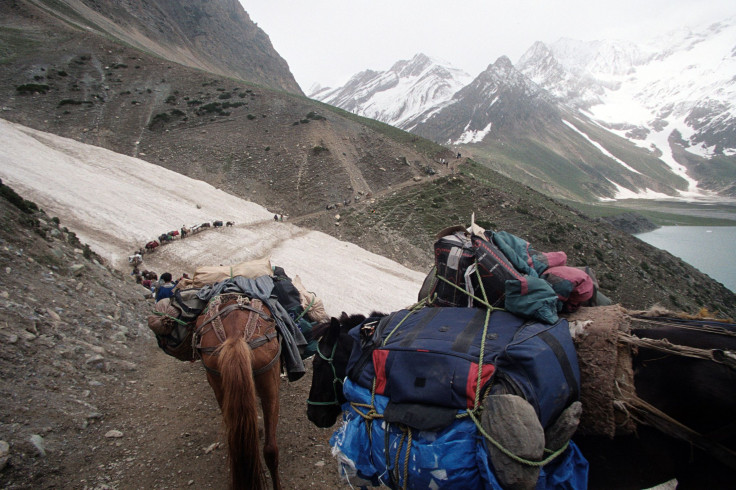Climate Change Himalayas: Everest Glaciers Could Disappear By 2100, Scientists Say

You can expect to say goodbye to the glaciers of Mount Everest in 100 years, according to a study just published in the science journal the Cryosphere. The study warns that, given no change in greenhouse gas emissions in the near future, around 99 percent of the glaciers around the world’s tallest mountain will melt, drastically changing the surrounding environment.
Exactly what that means for the environment and the local economies, though, was unclear. Melting glaciers have a ranging set of effects on the environment and ecosystems, from contributing to sea level rise, desalination of oceans and other less tangible effects on the world’s jet streams as well as the ability to reflect sunlight.
“We did not expect to see glaciers reduced at such a large scale,” said Joseph Shea, lead author of the new report and a glacier hydrologist in Nepal, according to the New York Times. “The numbers are quite frightening.”
The results were found using computer simulations, and Shea said that even though they correspond with measured conditions on the ground, the results could be imperfect. Still, even if a moderate reduction in greenhouse gases is achieved, the glacial melt in the Himalaya mountain range could reach 70 percent.
All of that adds up to about 5,500 glaciers in the region disappearing over the rest of the century. Around 1 billion people rely on glacier flows for water, farming and energy in the Himalayas and surrounding regions of Asia, according to the Guardian. After an initial increase in water flows from the melting glaciers, the region can expect a diminished water supply. That could mean less food in the long run for a region that is extremely dependent on the glaciers for agricultural purposes. The effect on tourism is also uncertain.
The climate and melting rate of the Asian glaciers has been the source of some contention, the Guardian pointed out, because the Intergovernmental Panel on Climate Change incorrectly reported earlier that all the glaciers would be gone by 2035.
© Copyright IBTimes 2024. All rights reserved.












